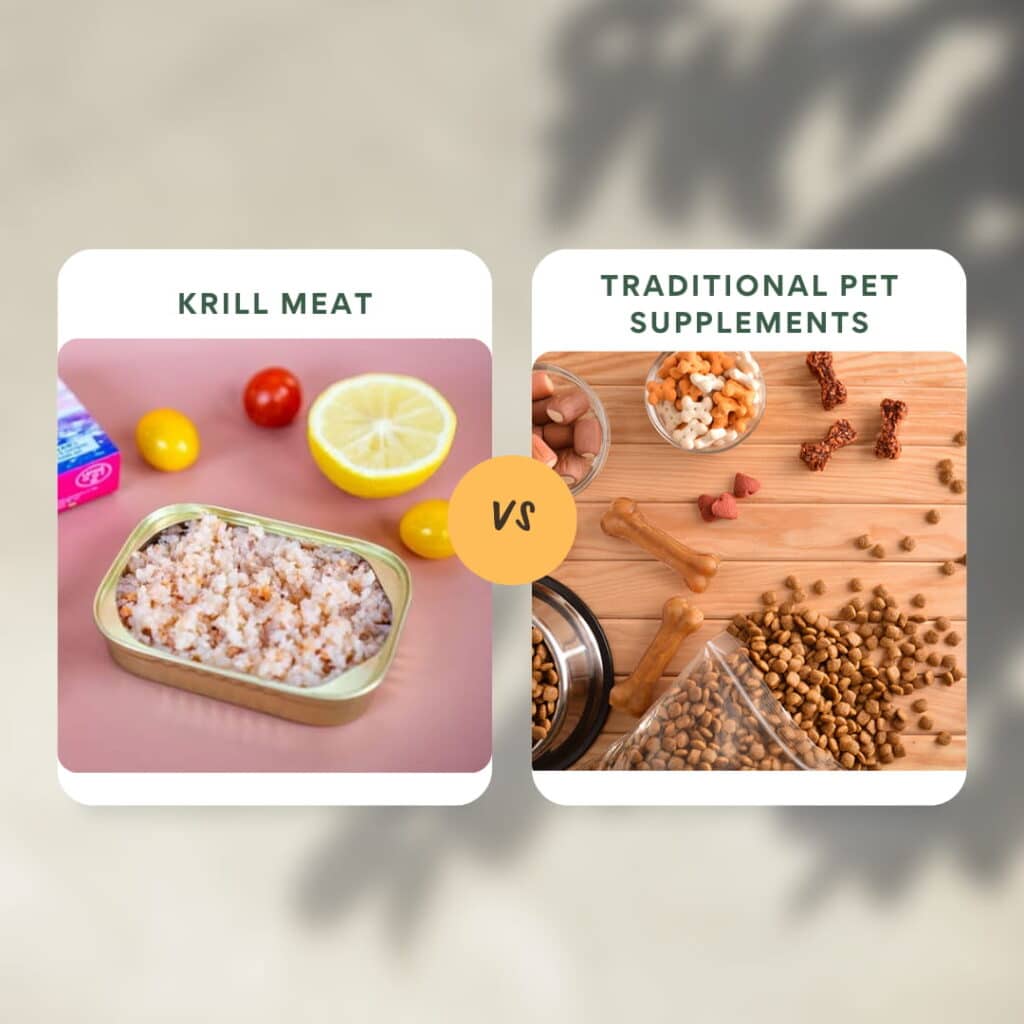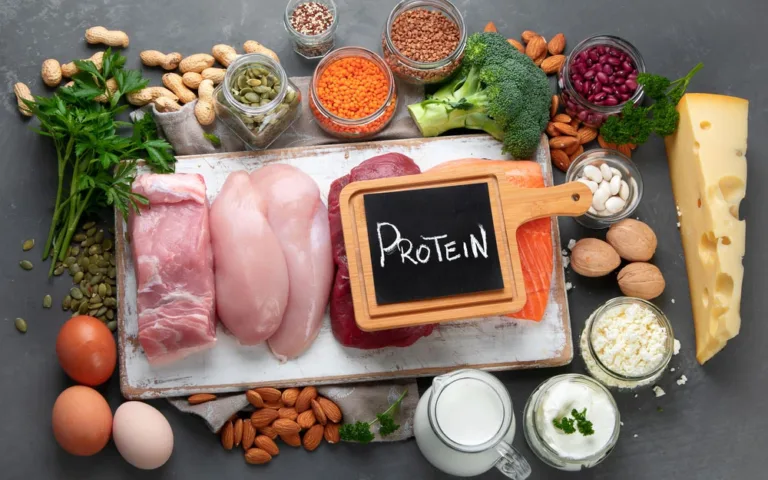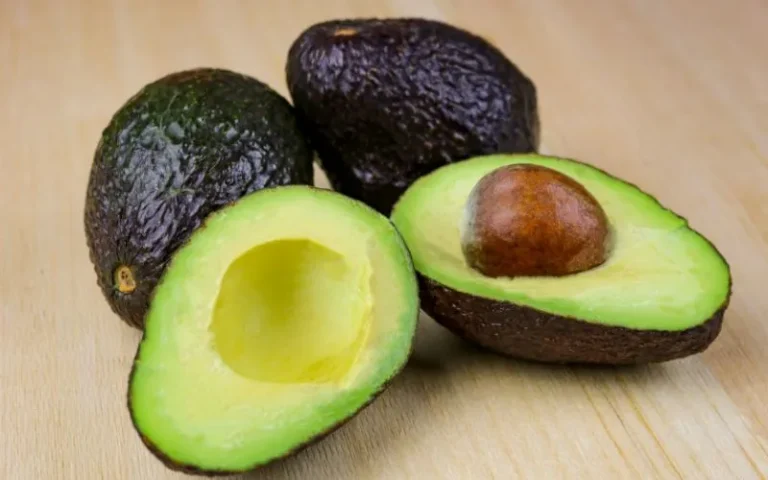Your pet’s health and happiness may come from an unexpected source the depths of the ocean. Imagine giving your cat or dog a natural, nutrient-packed superfood that supports their joints, boosts their energy, and keeps their coat shiny and healthy. That’s where krill meat comes in.
Krill isn’t just another trendy supplement; it’s a wholesome, protein-rich option that offers benefits beyond traditional choices like fish oil. Packed with omega-3 fatty acids, antioxidants, and high-quality protein, krill meat provides the essential nutrients your furry friend needs to thrive.
In this article, we’ll explore how krill meat can transform your pet’s health, its unique advantages over other supplements, and simple ways to include it in their diet. And don’t worry, we’ll briefly touch on krill oil too so read on to uncover how this natural powerhouse could make a big difference for your beloved pet.
What Makes Krill Meat a Superfood for Pets?
When it comes to giving your pets the best nutrition, krill meat stands out as an exceptional choice. What makes it so special isn’t just its nutrients it’s how these nutrients are naturally structured and absorbed by your pet’s body.
Krill meat is packed with omega-3 fatty acids, including EPA and DHA, but what sets it apart is how these nutrients are bound to phospholipids. Unlike other omega-3 sources, such as fish oil, this unique structure allows krill’s omega-3s to integrate directly into cell membranes. This means faster absorption and better results with smaller servings.
Then there’s astaxanthin, the antioxidant powerhouse. Found in high concentrations in krill, this bright-red pigment gives krill its color and offers protective benefits for your pet’s cells, helping to reduce oxidative stress and support long-term health.
What truly elevates krill meat is its status as a whole food, not a processed supplement. While krill oil is extracted for specific nutrients, krill meat delivers a more balanced nutritional profile, including high-quality protein that supports muscle health and energy. This makes it a versatile addition to your pet’s diet, combining multiple health benefits in one natural source.
In essence, krill meat isn’t just a superfood because of its nutrients it’s the way those nutrients work together to provide comprehensive, natural health support for your pets. If you’re looking for a smarter, eco-friendly way to give your furry friends the best care, krill meat is the answer.
Health Benefits of Krill Meat for Cats and Dogs
Here are five ways krill meat directly improves your pet’s health:
Relief from Joint Pain and Improved Mobility
Pets, especially older ones, often experience joint stiffness and pain due to inflammation. The omega-3s in krill meat help by reducing inflammatory markers in the body, leading to less swelling around the joints. Over time, this supports smoother movement and makes it easier for pets to stay active and playful.
Support for Heart Health
The EPA and DHA in krill meat work to lower triglycerides and maintain healthy blood pressure levels in pets. These nutrients also improve circulation, ensuring that the heart and other organs get the oxygen and nutrients they need to function properly. This can help your pet enjoy a longer, healthier life.
Enhanced Recovery from Illness or Stress
Krill meat’s combination of protein, omega-3s, and antioxidants supports faster recovery when pets are ill or stressed. The protein helps rebuild tissues, while antioxidants like astaxanthin protect cells from damage, aiding in quicker healing. It’s like giving your pet an extra boost when they need it most.
Reduced Allergies and Skin Sensitivities
Pets with allergies or skin issues often benefit from the anti-inflammatory properties of omega-3s. These nutrients help calm irritated skin, reduce redness, and strengthen the skin barrier, preventing further sensitivity. This makes krill meat especially useful for pets prone to scratching or dry, flaky skin.
Improved Appetite and Digestive Health
Krill meat is not only rich in nutrients but also highly digestible, making it gentle on the stomach. Its natural flavor can stimulate appetite, especially in picky eaters or pets recovering from illness. Additionally, the amino acids in krill protein support gut health, ensuring your pet gets the most from their meals.
Krill Meat vs. Traditional Pet Supplements
Pet owners often wonder whether to stick with traditional supplements or choose natural options like krill meat. Let’s take a closer look at what sets krill meat apart and why it might be the smarter choice for your pet:

Real Food Is Always Better Than Pills
Imagine giving your pet a meal they love versus trying to hide a pill in their food. Krill meat is a whole-food option, naturally packed with essential nutrients that your pet can easily digest and enjoy. Supplements, while effective, often need tricks to get your pet to consume them.
Fewer Processing Steps = Better Nutrition
Traditional supplements like fish oil are extracted, processed, and often mixed with preservatives. Krill meat, on the other hand, undergoes minimal processing, keeping its nutrients intact. This means your pet gets cleaner, more natural nutrition without unnecessary additives.
A Flavor Pets Crave
If you’ve ever struggled to give your pet a capsule or liquid supplement, you know how frustrating it can be. Krill meat’s natural taste is a game-changer it’s so appealing, most pets see it as a treat rather than just another meal ingredient.
A Holistic Nutritional Boost
While supplements target specific needs like omega-3s, krill meat provides a well-rounded nutritional profile. Alongside its omega-3s, it offers protein for energy and antioxidants for overall health, giving your pet more than just one benefit at a time.
An Eco-Friendly Choice for Conscious Pet Owners
Krill is responsibly harvested, ensuring sustainability and protecting marine ecosystems. Many traditional supplements rely on overfished species, which may harm the environment. With krill meat, you’re supporting a balance between pet health and environmental care.
When it comes to choosing what’s best for your pet, krill meat offers a natural, tasty, and sustainable alternative to traditional supplements. It’s not just a substitute it’s a choice that delivers more for your pet while being better for the planet.
How to Incorporate Krill Meat Into Your Pet’s Diet
Adding krill meat to your pet’s diet doesn’t have to be complicated. Here’s how to make it a smooth and beneficial transition:
Start with Small Portions
Introduce krill meat gradually by mixing a small amount into your pet’s regular food. This helps them adjust to the new taste and texture without overwhelming their palate or stomach. Observe their reaction over a few days before increasing the quantity.
Use It as a Treat or Topping
Krill meat’s natural flavor makes it a great treat for pets. Sprinkle it on top of their meals to enhance flavor and add a nutritional boost, or offer it on its own as a reward during training sessions.
Pair It with Balanced Nutrition
While krill meat is packed with nutrients, it works best as part of a well-rounded diet. Combine it with high-quality kibble, wet food, or other fresh ingredients to ensure your pet gets everything they need for optimal health.
Adjust for Size and Activity Level
The amount of krill meat you give should match your pet’s size and energy needs. Smaller pets or less active ones may require less, while larger or more active pets might benefit from slightly larger portions. Always follow recommended serving guidelines or consult with your vet for personalized advice.
Ensure Freshness
Store krill meat properly to preserve its quality. Fresh krill meat ensures your pet gets the maximum nutritional value and avoids any risk of spoilage.
Krill meat is easy to incorporate into your pet’s diet, whether as a daily supplement or a special treat. And here comes the good part your furry friend will love the taste while reaping all the health benefits this nutrient-rich food has to offer!
Is Krill Meat Safe for All Pets?
Krill meat is a nutritious addition to most pets’ diets, but certain factors should be considered to ensure it’s the right fit for your furry friend. Pets with shellfish allergies, for instance, may react poorly to krill meat. Symptoms like itching, swelling, or digestive issues can indicate an allergy. If you notice any of these signs, discontinue use and consult your vet immediately.
Portion control is also essential. Overfeeding krill meat even a superfood can lead to digestive discomfort or excess calorie intake. Start with small amounts and adjust based on your pet’s size and activity level. This is especially important for young puppies, kittens, and senior pets, whose digestive systems may need time to adapt.
If your pet has existing health issues, such as kidney or liver problems, it’s wise to consult your veterinarian before introducing krill meat into their diet. While krill meat is highly nutritious, each pet’s needs are unique, and professional guidance can help avoid complications.
Finally, always prioritize quality. Choose krill meat from trusted sources with clear labeling and sustainability practices. Poor-quality krill can spoil quickly, posing unnecessary risks to your pet’s health.
Conclusion
Krill meat is more than just a food option for your pets it’s a gateway to better health and vitality. From supporting joint health and enhancing mobility to giving your pet a shinier coat, a stronger immune system, and improved energy, krill meat provides benefits that are both immediate and long-lasting.
As a natural, whole-food option, krill meat goes beyond traditional supplements, offering a more balanced, digestible, and enjoyable way to improve your pet’s diet. With its nutrient-rich profile and eco-friendly sourcing, krill meat isn’t just good for your furry friends it’s a responsible choice for the planet.
So why wait? Make krill meat a part of your pet’s routine today. Whether you’re looking to boost their health or simply give them something they’ll love, this ocean superfood has everything they need to stay happy, active, and thriving for years to come.
FAQ
Is krill safe for all pets?
Krill is generally safe for most cats and dogs, but pets with seafood allergies or those on certain medications may need to avoid it. Always consult your veterinarian before introducing krill into your pet’s diet.
How much krill should I give my pet?
The appropriate amount depends on your pet’s size, weight, and health needs. Follow the product’s guidelines and consult your vet for personalized recommendations to avoid overfeeding.
Can krill replace other omega-3 supplements?
Yes, krill can be an excellent alternative to fish-based omega-3 supplements. Its nutrients are more easily absorbed, and it provides additional benefits like antioxidants, but consult your vet to confirm it suits your pet’s needs.
How quickly will I see results after giving krill to my pet?
Many pet owners notice improvements in their pet’s coat and energy levels within a few weeks. Joint and mobility benefits may take longer, depending on the pet’s condition and diet consistency.
Are there any side effects of feeding krill to pets?
Side effects are rare but can include mild digestive upset or allergic reactions. Introduce krill gradually and monitor your pet for any adverse reactions, such as vomiting or itching.








